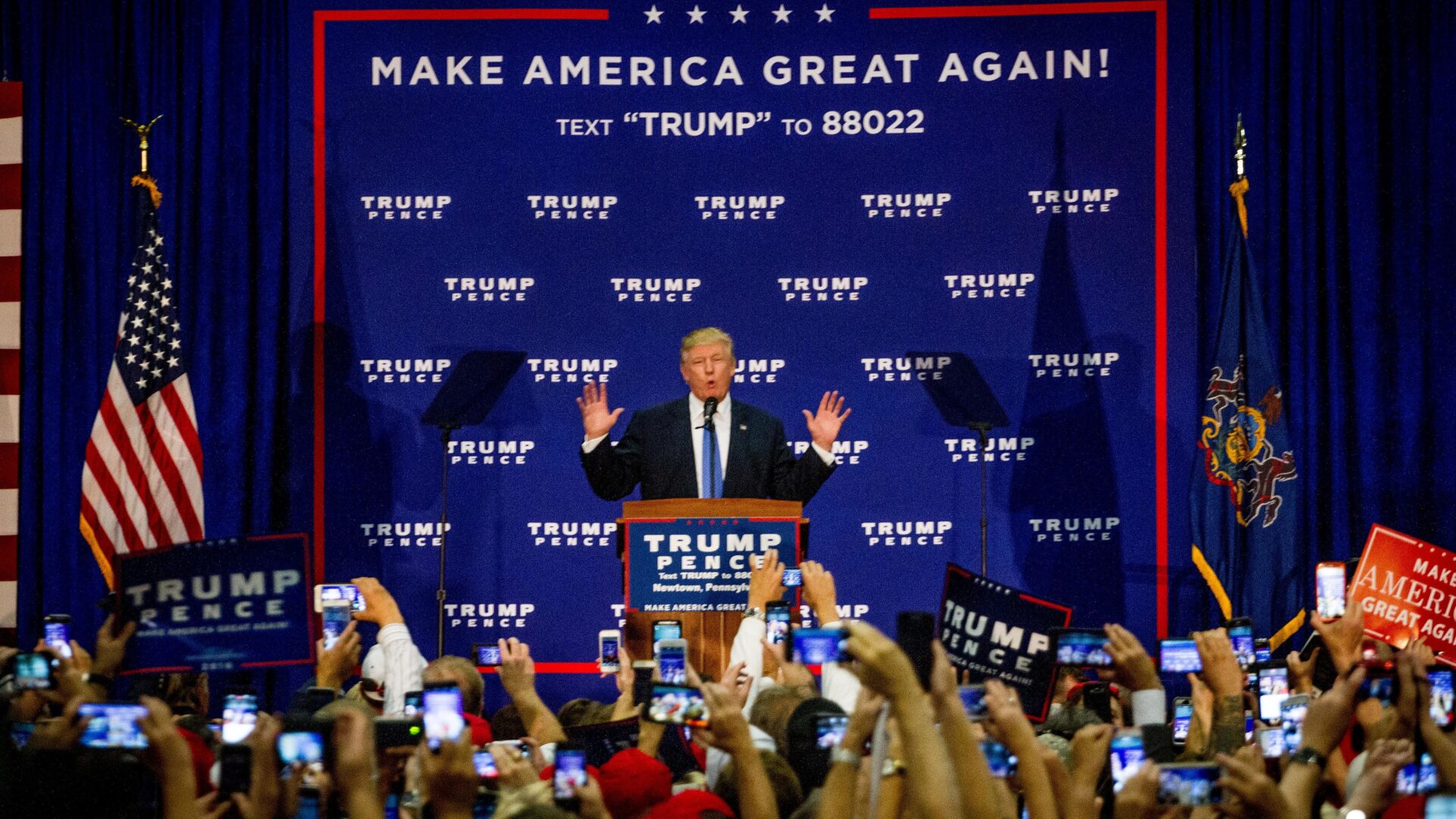The Trump phenomenon has generated an endless number of strong emotions and responses reflecting the deeply polarized state of our politics and worldviews, but one thing it hasn’t done is open the space for a dispassionate reading of the political condition today. The rapids of partisanship and endless displays of self-righteous indignation have made it impossible to do a sober analysis of the mutations America’s two-party system is undergoing. One would have expected liberal cultural critics to theorize this intensely dramatic moment by relying on Marx or Foucault, for instance; instead, we keep getting more of my values-are-more-enlightened-than-yours arguments. Theory has died in the era of virtue signalling.
I know that American politics has always been a crude expensive sport, one that has reduced American citizens to consumers, with no option beyond clicking a box for one of the presidential candidates they are offered by party apparatchiks. And when these two parties, mostly Democrats and Republicans, pretend to take the high road of bipartisanship, the deception gets even worse. Matt Gaetz, the feisty Republican Congressman from Florida, minces no words when describing bipartisanship as “the standard way of selling out the country to fuel the largesse of Washington and the greed of its managers.” Still, a sort of disruptive consensus between progressives and populists seems to be emerging and is already condemning the status quo of both parties to irrelevance.
To get a measure of this consensus — I am even tempted to call it a new revolution if it ever blossoms to its full potential— one only has to pay attention to the ideas of Gaetz and Michael Anton, the former national security official in the Trump administration, to realize how our linguistic designations are lagging far behind the political reality shaping the nation.
Gaetz and the Democrat Congresswoman Alexandria Ocasio-Cortez (commonly known as AOC) are closer to each other in spirit and even outlook than either one of them is to their partisans in Washington. (“In any other country,” said an exacerbated AOC last year, “Joe Biden and I would not be in the same party.”) When Gaetz says in his electrifying book Firebrand that the only bipartisan consensus he would accept is “a populist one, not an exploitative elite one,” he seems to have more in common with the band of radical Democrats than he does with Establishment Republicans. I know the term populism, much like socialism throughout most of American history, contains unsavory overtones of mayhem and mob rule. But that is more a function of our entrapment in old terminologies (which, given our soundbite culture today, are often misunderstood) than a reflection of the genuine sentiments of the forgotten citizens of America or the agenda of American populists.
Similarly, when Anton warns in The Stakes, his stirring and substantial manifesto for a new, muscular conservative movement, that Republicans will have to address wealth inequality if they are to survive as a party, he sounds more like the leftist filmmaker Michael Moore than the Mormon Republican Mitt Romney. Anton wants a party that fights for the endangered middle class and blue-collar workers, not one obsessed with the neoliberal dogmas of free trade and lower taxes. He also wants a public option in health insurance, just like Gaetz is committed to protecting the environment (in his own fashion, of course), because both men care mostly about the well-being of their nation and its citizens, not some abstract economic ideology with no value to the homeland.
There are legitimate differences between progressive Democrats and Trumpian populists as well as surprising alliances. When the richest counties in the United States (not to mention High Tech, Wall Street, most career government officials, and higher education professionals) overwhelmingly donate to Democratic candidates and the poorest ones support Trump and the Republicans, it is (ironically) obvious that the latter have become the de facto people’s party. (This is why our traditional political vocabulary is misleading.) Trump has transformed the Republican Party from an advocate of big business interests to the champion of blue-collar workers (the by-now legendary “deplorables”) who have been betrayed by American capitalism. Meanwhile, the well-to-do Democrats have the luxury of championing diversity from their inaccessible zip codes and enclaves because they leave the details of working out the vexations of living with strangers to the struggling middle classes living in out-of-sight neighborhoods. However one chooses to describe the Democratic Party, it is not, by any stretch of the imagination, socialist. It may seem radical only in the sense that its Young Turks are impatient with politics as usual and they want to establish a welfare system that has long been the norm in other Western industrial nations.
The passions that Trump unleashed, if well managed, could lead to a new political order, one that is more attuned to the local needs of citizens than to abstract theories of globalization and free trade. I can see Democrats and Trumpian populists joining efforts to challenge the billionaires to do their part and invest in their communities, not park their money overseas to avoid paying taxes at home. (The abdication of the noblesse oblige honor code by corporate titans, as the late sociologist Christopher Lasch once said about the bourgeoisie, is one of the tragic failures of America today.) It should be clear to all that the widening gap between rich and poor is as much (if not more of) a threat to human civilization as is the degradation of the environment. During the current Coronavirus pandemic, between 88 million and 114 million people have so far fallen into extreme poverty, a figure that dwarfs the number of Covid-19 infections, while the number of billionaires has increased. It is now reported that 2189 people own $10.2 trillion in wealth. Did you pay attention? With such staggering disparities, it is not unreasonable to believe that we live in the worst feudal order that the world has ever known. These figures make it clear that real democracy is more of a marketing gimmick than a lived social reality.
Radical Democrats and conservative populists disagree on a number of fundamental issues, such as the right approach to immigration, identity politics, freedom of speech, and solutions to racial and ethnic tensions. These differences will likely remain contentious in the foreseeable future and need to be debated vigorously if we are going to find lasting solutions, not opportunistic band-aid appeasements. But if both sides are willing to start by working “across the aisle” to re-calibrate the imbalance in wealth distribution, they could lay the foundation for more agreements down the road and, in the process, give the United States another chance to enjoy another century of undisputed leadership in our fragile world.





Comments are moderated by the editor and may not appear on this discussion until they have been reviewed and deemed appropriate for posting. All information collected is handled in a manner consistent with our privacy policy.